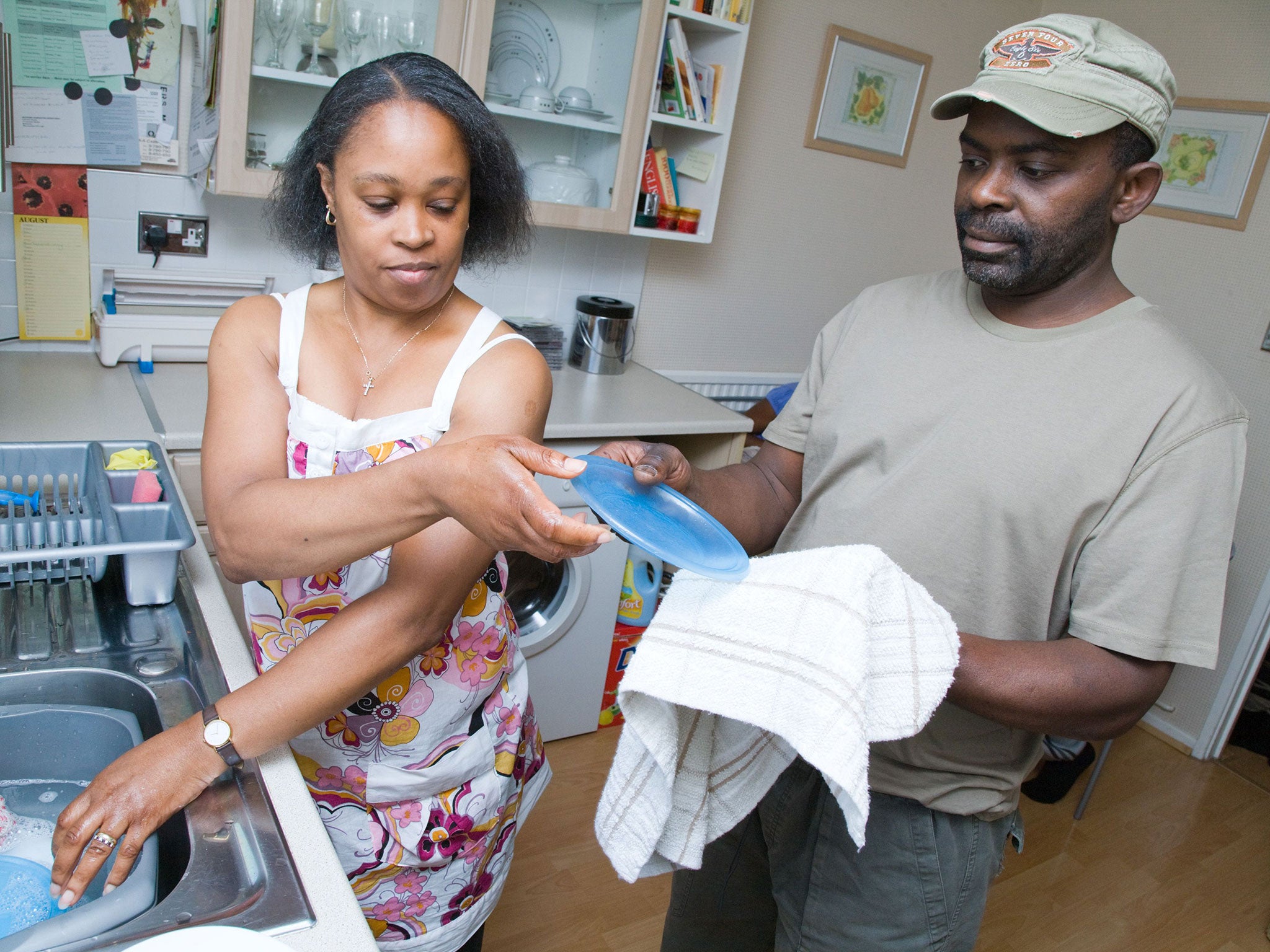White men among the worst, black men are best at doing share of household chores
Study of housework in the UK finds black Caribbean men have most egalitarian attitudes to gender

White men are among the worst in Britain when it comes to doing household chores, while black Caribbean men are the most likely to do their fair share, a study has found.
Compared to men from other ethnic backgrounds, black Caribbean men were more likely to share housework equally with female partners, as well as to have more egalitarian attitudes towards gender roles.
The study, conducted by the Institute for Social and Economic Research, found white men were among the worst in Britain in terms of the hours of housework they put in.
White men were no more likely to share housework equally than men from other ethnic backgrounds, and tended not to have egalitarian views on statements suggesting a woman’s place is in the home rather than at work and vice versa.
The study looked at the behaviour of almost 30,000 married and cohabiting people from more than 12 ethnic backgrounds.
Results showed that, on average, men from all ethnic groups do about 30 per cent of the housework, with female partners picking up the rest. This amounts to about six hours of housework per week for men, compared to 14 for women.
Overall, the study found very little difference between ethnic groups in terms of what percentage of the housework is done by men – the majority hover around the 30 per cent average.
Black Caribbean men, who pick up 40 per cent of the housework, are the closest to doing their fair share. Men in the ‘other Asian’ category (not Pakistani, Bangladeshi, Indian or Chinese) follow close behind.
Pakistani men have a notably smaller share in household chores – with an average of 17 per cent of the housework being done by men.
Though they are about average in terms of the percentage of the housework they do, in terms of actual hours spent on housework white British men are among the worst, with other Asian and black Caribbean men once again putting in the most work.
Out of the 12 ethnic groups looked at, only Pakistani and ‘white other’ men spend fewer hours on domestic tasks than white British men.
Professor Heather Laurie, who co-conducted the study, told the Guardian: “We found both differences and similarities among ethnic groups, but were surprised to see that in multicultural Britain today, white British couples are not necessarily the most modern and egalitarian in their outlook on housework.”
The study also looked at participants’ attitudes towards gender roles, providing them with a series of statements such as “a pre-school child is likely to suffer if his or her mother works” and “a husband’s job is to earn money; a wife’s job is to look after the home and family”.
Respondents were asked to what extent they agreed to these statements on a five point scale from ‘strongly disagree’ to ‘strongly agree’.
Participants were then given a score corresponding to their answers, ranking on a scale between -2.5 (the least ‘traditional’ views) and 1.5 (the most ‘traditional’).
Results showed that the majority of participants had a negative score, implying a more egalitarian approach to gender across ethnic backgrounds.
The most ‘traditional’ views were found to be held by Pakistani men, who averaged a score of 1.26. Pakistani women were the only group of women who had a positive average score (0.708).
Black Caribbean men were shown to have the most egalitarian attitudes towards gender roles, with a mean score of -2.2. White British men, with a score around -1.4, have a significantly less egalitarian attitude in comparison.
“This may reflect a strong history and culture of black Caribbean women being in paid employment”, the study states, “making combining family life and paid work the norm for this group”.
Subscribe to Independent Premium to bookmark this article
Want to bookmark your favourite articles and stories to read or reference later? Start your Independent Premium subscription today.

Join our commenting forum
Join thought-provoking conversations, follow other Independent readers and see their replies